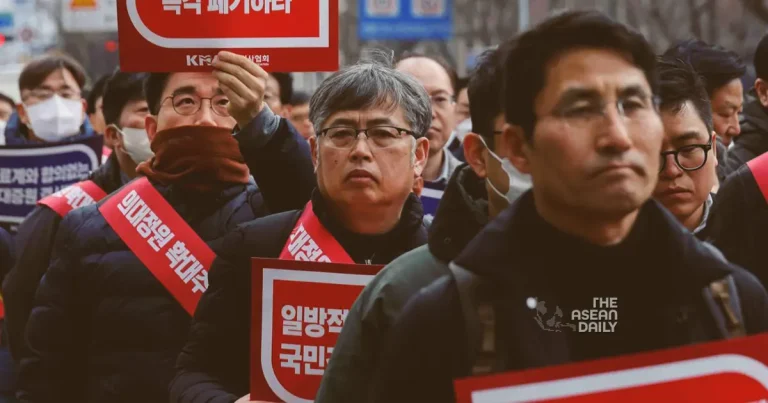5-3-2024 (SEOUL) The South Korean government announced on March 5 its decision to notify striking trainee doctors about impending suspensions of their medical licences, signaling a firm response to the ongoing protests against medical training reforms. Thousands of junior doctors had resigned and ceased working two weeks ago in opposition to an increase in medical school admissions set to take effect in 2025.
In an effort to address shortages in the medical field and meet the needs of an ageing society, the government had mandated the enrolment increase. Despite a February 29 deadline for the striking trainees to return to work, they continued their protests, defying the government’s order.
Second Vice-Health Minister Park Min-soo conveyed in a press conference that approximately 7,800 junior doctors, who persisted in their refusal to return to work, would be served advance notices of administrative measures, including licence suspensions, starting from March 5.
“The government will respond in accordance with laws and principles to prevent acts that threaten people’s lives and health from occurring again,” Park stated. However, the warning has not prompted a significant return of striking junior doctors to their duties, as revealed by government data.
As of March 4, nearly 9,000 trainee doctors remained on strike, maintaining a consistent figure over the past two weeks. The mass work stoppage has adversely affected hospitals, leading to cancellations of essential treatments and operations. In response, the government elevated its public health alert to the highest level.
About half of the scheduled operations at major hospitals have been cancelled since last week, according to the health ministry. Striking doctors face restrictions under South Korean law, which prohibits strikes by medical professionals, prompting the government to involve the police in investigating individuals associated with the protest.
The government’s initiative to admit an additional 2,000 students to medical schools annually from 2025 is a response to what it considers one of the lowest doctor-to-population ratios among developed nations. Park emphasized that medical colleges have already sought approval for an increase of 3,401 students in 2025, supporting the necessity of the plan.




